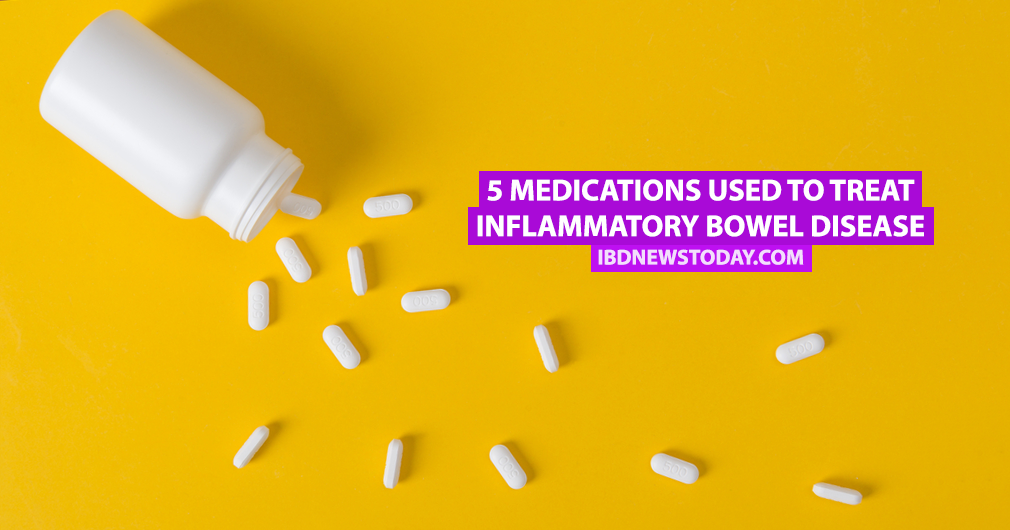Medications for inflammatory bowel diseases (IBD) like Crohn’s disease and ulcerative colitis have three main aims: to prevent symptoms, ease symptoms, and improve the quality of life for those living with the disease.
According to the Crohn’s Colitis Foundation, there are five main types of medications used to treat IBD:
Aminosalicylates
Aminosalicylates are used to reduce inflammation in the gastrointestinal tract and are often prescribed to people with ulcerative colitis or mild cases of Crohn’s disease. They can be taken in liquid, tablet or suppository form, depending on where in the GI tract the inflammation is.
Corticosteroids
Because IBD is an autoimmune disease, drugs which quiet down the immune system can help reduce inflammation in the GI tract. They are used when patients experience flares as they can usually get to work quickly. Corticosteroids should not be used as a long-term treatment for IBD as there is a high risk of side effects. Depending on the type of medication, corticosteroids can be taken as a pill, as a suppository or as an injectable.
Immunomodulators
Immunomodulators also work to reduce patients’ overactive immune system but unlike corticosteroids, they can be used as a long-term treatment, particularly since it can take up to six months before they begin to work. They are often taken alongside corticosteroids until they begin to take effect. Immunomodulators are either injected or taken orally.
MORE: Immune therapy shows response and remission in Crohn’s disease patients.
Antibiotics
Antibiotics are used to treat bacterial infections that may result from abscesses or fistulas. They can also be used to treat the bacterial infection clostridium difficile. They are often prescribed following surgery to prevent any post-procedure infections and are usually taken orally or through IV infusions.
Biologics
Biologics are proteins that stop certain molecules in the body from causing inflammation in the GI tract. These are usually prescribed to those living with moderate to severe cases of IBD who haven’t responded to other types of treatment. There are given either as an injection or an IV infusion.
MORE: Biologics help maintain intestinal mucosa health in IBD patients.
IBD News Today is strictly a news and information website about the disease. It does not provide medical advice, diagnosis or treatment. This content is not intended to be a substitute for professional medical advice, diagnosis, or treatment. Always seek the advice of your physician or another qualified health provider with any questions you may have regarding a medical condition. Never disregard professional medical advice or delay in seeking it because of something you have read on this website.


There are side effects with all of these drugs. Why does the Crohn’s Colitis Foundation only mention that for the corticosteroids?
Because they like to keep people in the dark. Most likely money is somehow the motivating factor for if they were truly non biased they would report on things honestly. Sufferers do know better thou!